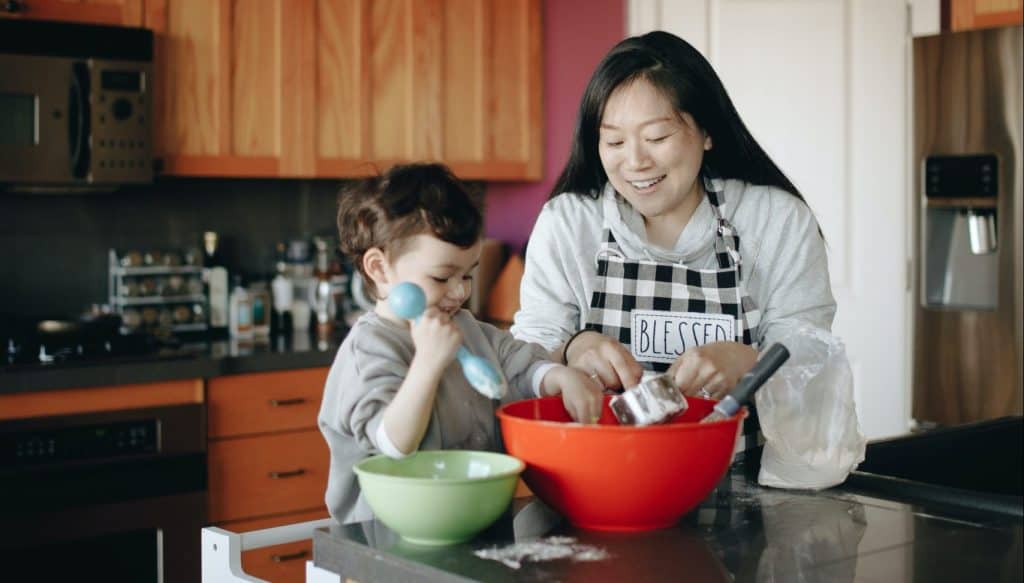Toddlers go through phases of self-exploration where they begin to establish their sense of identity and independence. It isn’t unheard of for toddlers to play favorites with their parents, and for those favorites to change rapidly, sometimes on a day-to-day basis.
If you suddenly find yourself to be the bane of your toddler’s existence, you aren’t alone. There are plenty of parents who are in the same boat as you. Rest assured, it isn’t the end of the world. Your child still loves you, even if all their actions point to the contrary.
Why Does My Toddler Want Nothing to Do with Me?
Babies and toddlers go through phases in which they form relationships with their primary caregivers. As early as 6 weeks of age, babies can already begin developing preferences for a specific caregiver over others.
Even children who are securely attached to both of their parents may go through phases where they prefer one parent or even actively push one parent away in favor of the other. Toddlers who are securely attached trust that their parent’s love is unconditional and will not fade away, even if they do not actively return that affection in the moment.
Caregiver preferences are common amongst toddlers and even babies. A shift in parenting roles due to illness, new jobs, and separation can cause toddlers to become more accustomed to the care of one parent over the other.
The birth of a new sibling can also drive parent preferences in toddlers. One parent may provide more care to the new baby while the other takes charge of the older child. Observing this shift in attention, the older child may develop feelings of jealousy, longing for the undivided affection they once received from both parents.
People are naturally drawn to the things they find familiar and comforting, and toddlers are no different. As they become more familiar with one parent’s routines, they will naturally choose to have that parent perform the same jobs with them.
Try Not to Take It Too Personally
This is much easier said than done. Seeing your toddler reject your affection hurts, especially if you are the birthing parent. After incubating and growing them in your body for 9 months, nursing them, and spending countless sleepless nights caring for them, you’d expect them to reciprocate your affection, or at the very least accept it.
Sadly, toddlers have not yet developed the cognitive resources and socio-emotional skills needed to take into account other people’s emotions in planning their actions. Your toddler’s affection, or lack thereof, isn’t a reflection of your parenting skills.
It’s normal and perfectly human to feel sadness, hurt, and even anger when someone you love rejects you for someone else. Let yourself feel these emotions and find a trusted person to share these feelings with and lighten the load, but don’t let them negatively affect the way you love and care for your child.
Find Special Activities
Find new activities for the two of you to do together. Find things that you know your toddler will find exciting and engaging and mark them down as activities that are exclusively for you and your toddler to do together.
This can be an errand that you do together, like grocery shopping or going to the car wash. Decide on an activity that can be accomplished with some frequency, such as a special meal or edible treat you make together or even a fun game or a toy you play with together.
Become a Secure Base
Toddlers and young children often have a parental figure or a caregiver who acts as their secure base. A toddler’s secure base acts as the comfort zone around which they can confidently explore their environment.
They trust that they can rely on their secure base for direction when they are unsure, comfort when they are hurt, and a safe place to return to at the end of the day.
Does the favorite parent handle most of the childcare? Home with them most of the day? They might be acting as your toddler’s secure base.
The best way to become a secure base for your toddler is to be consistently present, physically and emotionally. Put off doing chores and play silly games together. Be sensitive and empathic – their problems might not be as complex as an adult’s, but in their mind, are still the most important things in the world.
Sympathize with them and show them you understand how they feel when they ask for their “favorite” parent over you. “I know it’s hard when daddy goes to work early, and mommy has to help you get dressed instead.”
Offer up a compromise “Maybe I can help you better if you can tell me what daddy does when he helps you get dressed.”
Take Notes
Perhaps it isn’t exactly the parent your toddler prefers, but rather the way that parent does things. Maybe it’s the way they do the voices in a bedtime story or how they pour just the right amount of cereal and milk into the bowl.
See if you can adapt some of these preferences your toddler has when you do things with them. Let them know that you are making an effort to reduce their anxiety from being away from the preferred parent. Try saying something like “I’m sorry daddy can’t read you your bedtime story tonight, he had to work late. Why don’t you and I try reading a brand-new story together?”
Take Care of Yourself
It’s easy to feel down on yourself and doubt your abilities as a parent when your child pushes you away. You are a perfectly capable parent, and your value isn’t dependent on your child’s acceptance of your affection.
Seek support from a mental health professional if you can’t shake off those bad feelings. Support from a parenting coach can also help you become more confident in your parenting skills and help you find ways to connect more with your child.
If You Are the Preferred Parent
Advertise the non-preferred parent to your toddler. Make plans for your toddler to do something fun together with the other parent. Get them excited for it. Say things like “you know, mom bakes the best chocolate chip cookies ever” or “dad can name all the birds in the park”.
If there is an activity you know your toddler loves doing, like going to the ice cream shop or weekend trips to the park, give the other parent a chance with these more exciting and fun parenting jobs once in a while.
As the “favorite” parent, your toddler knows and trusts you to be their safe zone. Remind them that they are loved equally by both parents and assure them that they can depend on their other parent just as much as they depend on you.
Talk to them about what makes different people unique and special. Ask them to think of things they like about their parents and what they think makes each of their parents special. Have them think of activities that they think would enjoy doing with the other parent.
Finally, offer your support to the other parent. As much as you may find your child’s preference to make you happy and confident in your parenting, the other parent may be having the exact opposite feelings. Be a safe space to air their concerns and vent their frustrations.
Last Words
Toddler preferences are a part of development. They are exploring their likes and dislikes, establishing their personality, and exploring their independence. This phase too, no matter how seemingly endless, shall pass.
Soon enough, your child will learn that they can love both their parents equally and appreciate the things that make both of you great parents.








